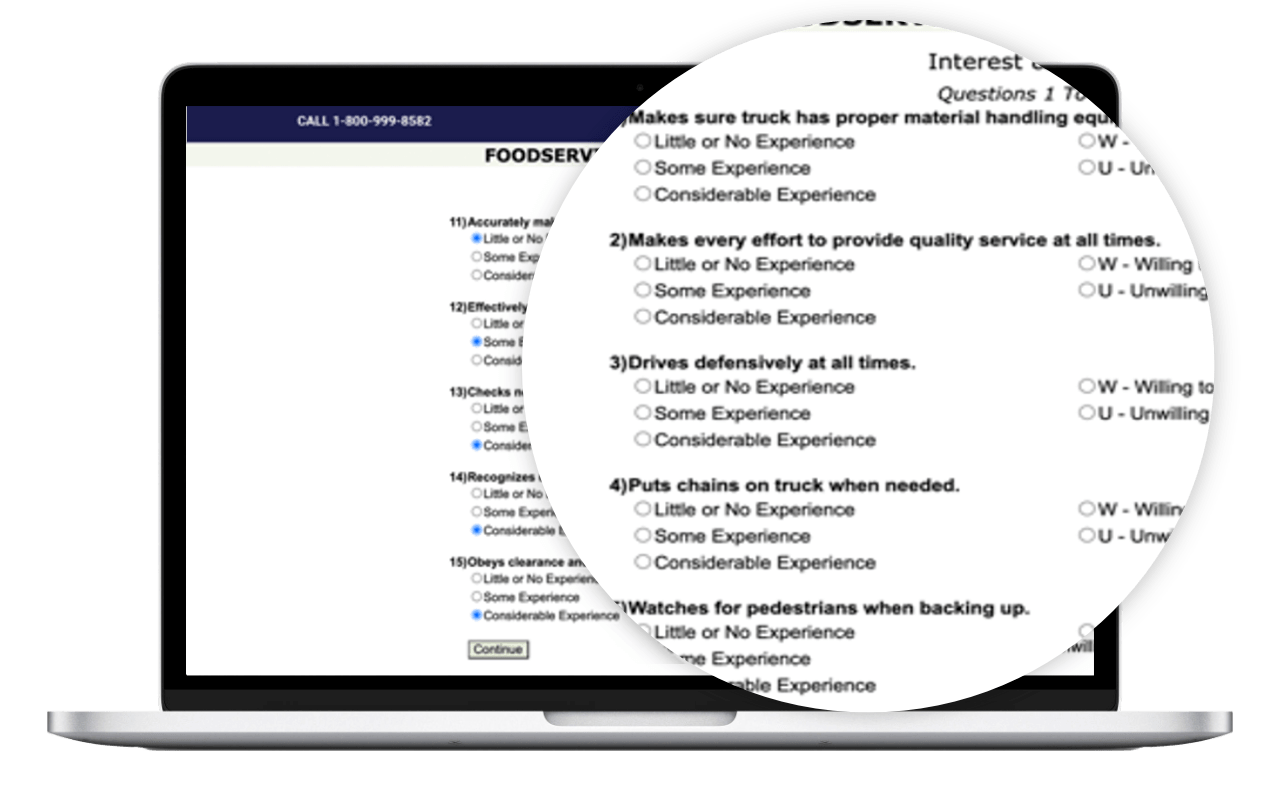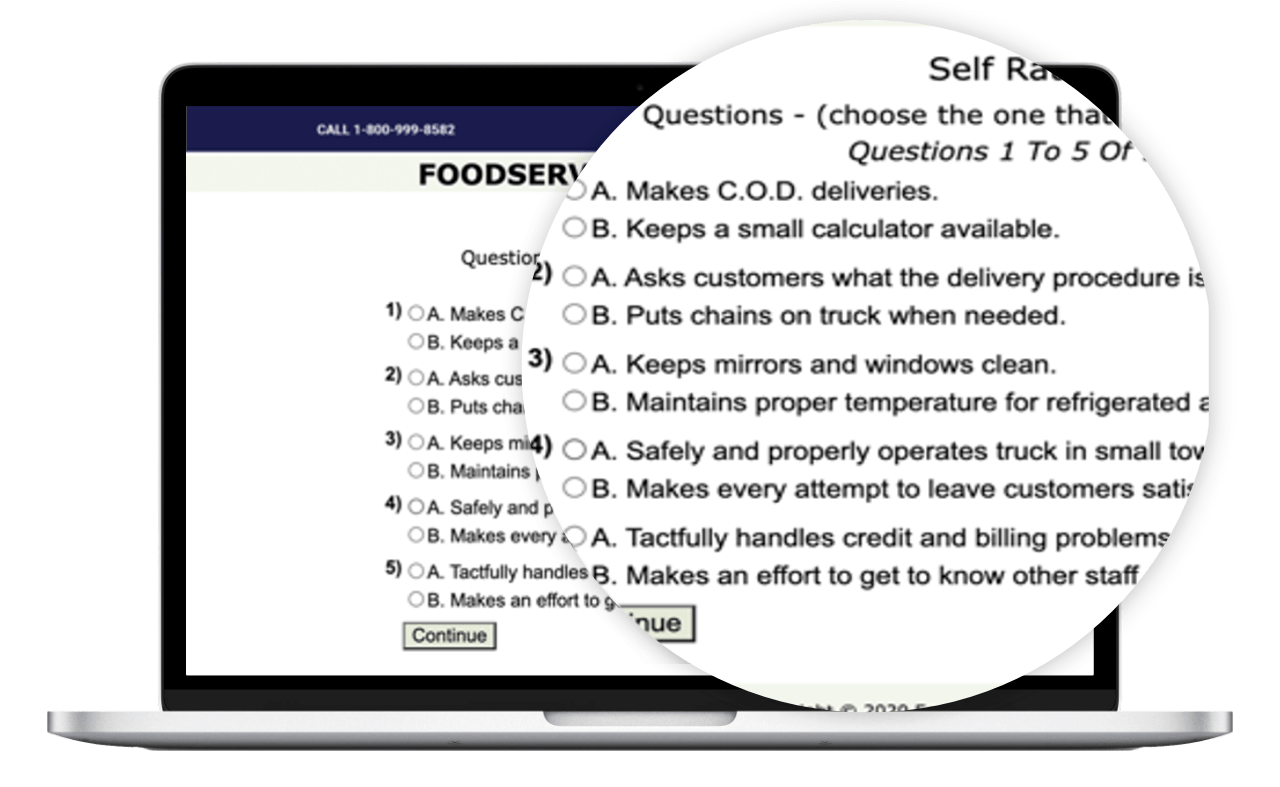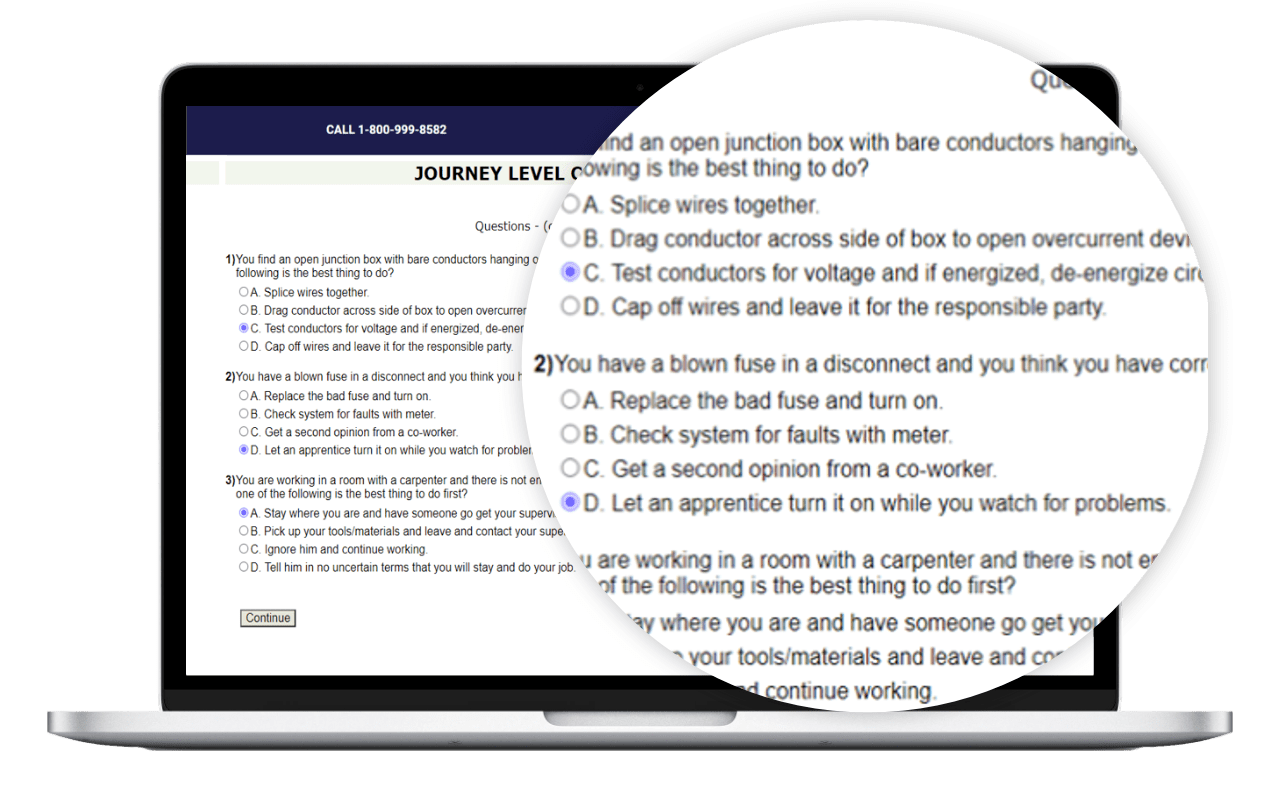A Transit Bus Operator/Driver is responsible for safely and efficiently operating transit buses to transport passengers along scheduled routes in urban or suburban areas… Read More
This scientifically valid methodology identifies 100+ key high-performance job behaviors, forming the basis of the Job Success Profile™. Through a comprehensive questionnaire, applicants can assess their alignment with the known high-performance behaviors of top performers.
A Transit Bus Operator's understanding that running off schedule impacts the whole system is pivotal in recognizing the interdependence within the transit network. This comprehension emphasizes the significance of teamwork and coordination among all system components for smooth operation. The operator enhances the transit system's overall efficiency and reliability by adhering to schedules and upholding punctuality. Passengers benefit from timely service and seamless route transfers, resulting in more effective system functioning. This positive reputation bolsters passenger satisfaction and fortifies the entire transportation network. Conversely, the failure to grasp this concept disrupts the necessary teamwork, leading to operational breakdowns. Consistent schedule deviations cause delays, missed connections, and heightened passenger frustration, eroding confidence in system reliability. This lack of understanding strains colleague relations, impacting operational efficiency. Recognizing the impact of schedule adherence fosters cohesion, efficiency, and dependability within the transit system, underscoring the operator's pivotal role.
A Transit Bus Operator's willingness to take responsibility for their decisions yields positive outcomes by fostering self-reflection and critical self-evaluation within the transit system. This accountability cultivates personal growth and performance enhancement, pinpointing areas for improvement. Proactively embracing this responsibility instills a sense of ownership and bolsters the efficiency and effectiveness of transit services. Consequently, responsible decision-making elevates individual job performance and bolsters the transit system's overall success and reliability. Conversely, avoiding accountability discourages self-growth, hindering the operator's ability to learn from mistakes and enhance performance. This reluctance stifles development, leading to repeated errors and suboptimal performance while also straining relationships within the team. Ultimately, shirking responsibility restricts personal growth and hampers the transit service's efficiency, negatively impacting passenger transportation quality.
A Transit Bus Operator's choice to take extra time with the elderly has far-reaching implications. It represents a commitment to exceptional customer service that acknowledges and respects each passenger's unique needs, especially elderly riders who may require additional assistance. This approach fosters inclusivity and consideration, ensuring the safety and comfort of elderly passengers while elevating their overall experience. Furthermore, it demonstrates a dedication to customer-centric service, cultivating goodwill and passenger loyalty. In contrast, neglecting to allocate extra time for elderly passengers can lead to negative consequences, including safety risks and operational inefficiencies. Such oversights increase the likelihood of accidents like falls during boarding or disembarking, which not only jeopardize passenger well-being but also result in significant time disruptions and transit delays. This seemingly minor consideration of taking extra time profoundly impacts the transit system's safety, efficiency, and overall passenger experience.


We created this section, in part, because many applicants have little or no idea before employment about the full range of behaviors expected of them should they be hired. The Interest & Willingness section gives applicants an opportunity to rate themselves on all the behaviors and other conditions of employment.
It serves four purposes:
1st, it acts as a communication tool to the applicant by giving them a comprehensive overview of the behaviors they will need to bring to the job to be successful. 2nd, it allows applicants to select any unwilling responses that flag possible problems and, 3rd, it provides a highly useful and detailed profile of the strengths and weaknesses of the applicant. This profile can be used for more effective training, placement, and further development of existing employees. Finally, this section serves as an understanding between the employer and employee of what is expected in the job.


The assessment accurately identifies applicants who describe themselves in high-performance terms which makes this section a very powerful part of the assessment. The correct answer to each of the pairs is, in fact, the Job Success Profile of high-performance employees. This section measures each applicant to see how closely they come to matching the success profile of known, superior performers.


This section is designed to look for applicants who, by their responses, demonstrate the same competencies as the known outstanding performers.
It asks applicants to choose a response to actual on-the-job scenarios that illustrate high-performance behaviors.



A Transit Bus Operator/Driver is responsible for safely and efficiently operating transit buses to transport passengers along scheduled routes in urban or suburban areas. The transit bus operator plays a crucial role in providing reliable and timely transportation services to the public while ensuring passenger safety and comfort.
Designed with top producing SMEs
SelectRight assessments are developed using subject matter experts. We assess potential subject-matter experts based on their skill/knowledge, ability & performance, and reputation & management consensus. Before being published, each test is rigorously peer-reviewed, then calibrated using hundreds of test takers with relevant experience in the subject. Our feedback mechanisms and unique algorithms allow for continued reliable and accurate test performance.